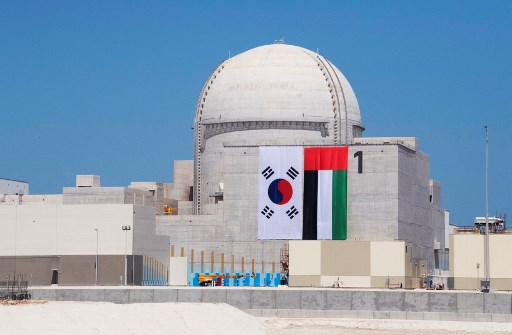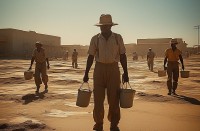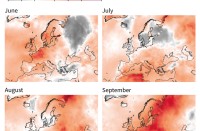
The United Arab Emirates said that one of four nuclear reactors at its debut plant has been completed as it moves closer to becoming the first Arab nation to produce atomic power. / AFP PHOTO / WAM / Abdullah AL-JUNAIBI
ABU DHABI, United Arab Emirates (AFP) — The United Arab Emirates (UAE) said Wednesday that its first nuclear reactor would come online in late 2019 or early 2020, further delaying the launch of the Arab World’s first atomic power station.
Construction of the first of four reactors at the $20 billion (17 billion euro) Barakah plant has been completed ahead of “operation by the end of 2019 (or) early 2020,” Emirates Nuclear Energy Corpation said, quoted by the state-run WAM news agency.
The first reactor had been due to come online last year, but the launch was initially delayed until 2018 to make time for regulatory approvals and complete safety checks.
No reason was immediately given for the latest postponement.
State-owned ENEC said a second reactor was 93 percent complete, a third is 83 percent finished and the fourth was 72 percent complete.
The nuclear plant west of Abu Dhabi is being built by a consortium led by the Korea Electric Power Corporation.
When fully operational, the four reactors should produce 5,600 megawatts of electricity, around 25 percent of the UAE’s needs, according to the energy ministry.
Nuclear and renewables are targeted to contribute around 27 percent of the UAE’s electricity by 2021.
The UAE says it wants 50 percent of its energy to be generated by clean sources by 2050.
Saudi Arabia, the world’s top crude oil exporter, plans to build up to 16 nuclear reactors, but the projects have yet to materialise.
© Agence France-Presse







